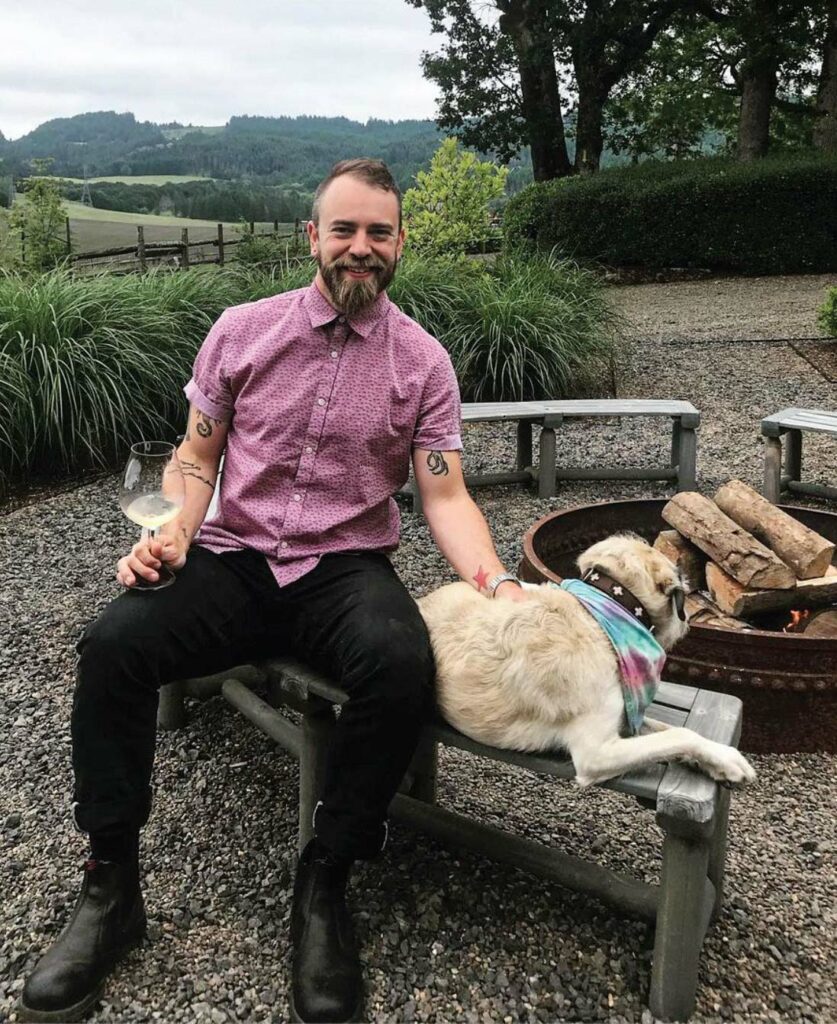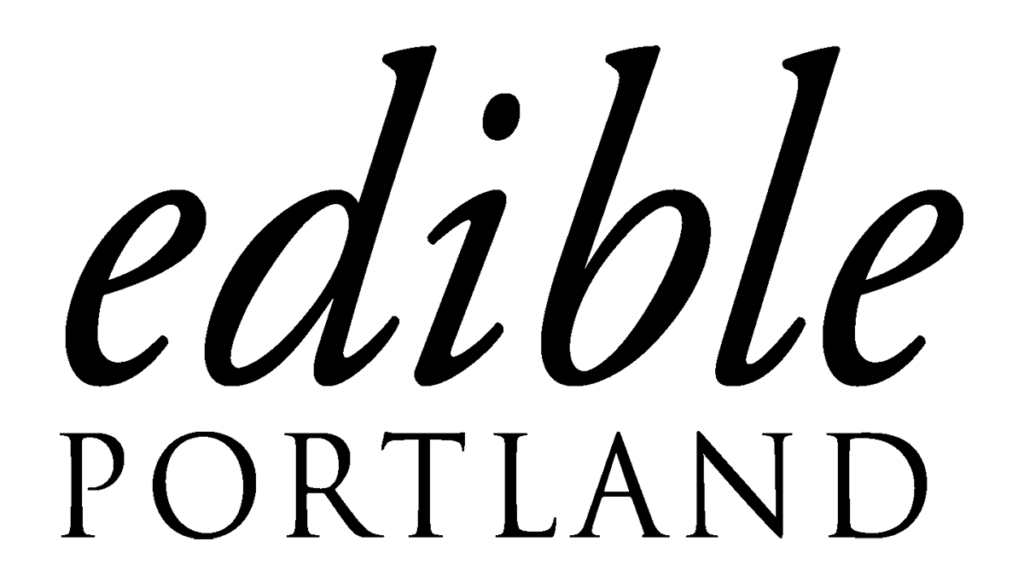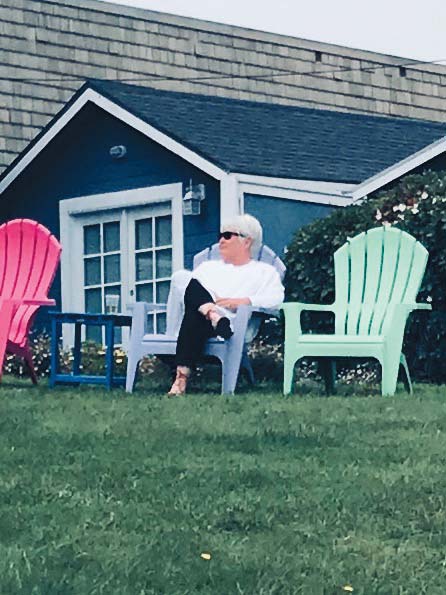Equity and Altruism Are the Cornerstones of Lük Wylde’s Natural Wines
Sitting outside on a lovely fall day at the One Horse Tavern in Gaston, I visit with winemaker Lük Wylde over lunch. Lük’s label is Lares, and they make wine with their partner Meredith Bell under the label Statera. Lük is one of my favorite human beings, as in humans being totally cool. I am curious about Lük’s more innovative blends. They explain that it initially started with Lares. In Oregon, the Pinot Noir grape reigns supreme, followed by Chardonnay and Pinot Gris. When trying to develop a label, they knew it would be folly for them to join the establishment. They wanted to make something that felt like a reflection of themselves and their personality by blending varietals that had not been combined before or that were unconventional. With Lares, they say that the blends have a lot to do with their own personality, their own relationship with being a queer person with an inclusive gender identity.
Curious about their experiences before coming to Oregon to make wine, I ask, “So, could you tell me a little about how you decided the wine industry was for you?” Lük smiles, sits back and shares. Their journey began during the financial turmoil of 2008-2009 when everything collapsed in the Great Recession. They worked in TV at the time in Los Angeles, doing a lot of work on taped shows, but they preferred to work in live TV, such as the Super Bowl halftime shows, the Emmy Awards and specials. Because of the recession, they began to look for something else to do.
Drinking and evaluating wines had become an interest from their college days. Their partner then suggested, “Well, you really like wine and riding bicycles, so you could try to get a job in one of those two areas and see if it fits.” Thus, they ended up in the wine department of Whole Foods in Venice Beach; it was their first “real kind of cool job in wine.” Suddenly, they had access to a 2,000-brand wine department. Soon, they realized they had scarce wine knowledge and felt they were parroting words read from distributors’ tasting cards. Eventually, they talked to their boss, telling him they felt that they did not know anything about actual wine production and were just repeating the qualities and descriptions that other people told them. They had never actually witnessed wine being produced. Serendipitously, their boss encouraged them to go work a harvest. The boss had a winemaker friend from New Zealand, and he had contacts at Chehalem Winery. He told Lük that while on his lunch break, he would write them both and see if either had room for an intern for the following year. He returned from lunch and said, “You gotta turn in your two weeks because you’re moving to New Zealand. You’re going to go work harvest there.” So, Lük moved to New Zealand for four or five months with the same partner who suggested they look for a job in wine. Subsequently, they worked the harvest in the Waipara Valley in New Zealand, Chehalem winery in 2011, in Margaret River in Western Australia the following year and a double vintage in the fall in Germany’s Mosel Valley. Lük decided Oregon was “a cool place to live and keep doing his wine thing.” At first, they worked in the cellar at Adelsheim. Then, they were the wine club manager and hospitality manager at Amity Vineyards. In 2015, they left Amity to be the assistant winemaker at Division; they were there for three years before leaving to go to Abbey Road Farm. They were ready to work for themselves after a short time at Abbey Road.
Working for themselves turned out to be collaborating with Meredith Bell of EST wines. This is their 10th harvest together. They remark, “It was pretty wild, but we survived.” Meredith and Lük started by putting just $5,000 each into the Statera label. “If we didn’t make it, we didn’t,” was their philosophy. “We want to keep the company just the two of us because we feel that the moment you get investors involved is when you lose your ability to continue making decisions based on your own values.” They approach the company in terms of a lot of equity and altruism. “We try to ensure that both of us always get at least one, if not two, days off a week during harvest, which is unheard of in the winemaking world. There is no point in overworking. If you have a partner, you should be able to fully trust them and allow them to give you a break because you come back better able to make decisions for the company and yourself.” The two found that level of trust because they immediately had a sense of shared community. Lük shares that both come from Burning Man-like communities, so both have a strong sense of commonality. For them and Meredith, there was a shared understanding of building community without it being solely based on money but rather on the quality of what you make. “I think this has gone a long way for us. We have never sacrificed our values or desire for quality to make a quick buck, which has worked out well.”

Lük and Meredith are handsoff and are adamant about not adding anything but sulfur to the wines. They don’t add yeast, acid or other nitrogen fixers like diammonium phosphate. Also, they don’t filter their wines. Since the first vintage, they have included their ingredients on the labels.
Lük Wylde and dog Hatchet at Abbey Road Farm. Photo: Jocelyn Wylde
Initially, they and Meredith sought out vineyards they thought were interesting or those with which they were familiar. Among those were Corral Creek Vineyard, Anderson Family Vineyard, an organically farmed property, and Johan Vineyard because the vineyards had an excellent reputation for quality Chardonnay. Initially, they prioritized the organic vineyards and eventually stopped sourcing from any vineyard not farmed organically or with anemic practices. Lük also became concerned about how vineyard workers were overworked and underpaid. Statera decided to include this inequality in their decision-making. They don’t purchase fruit from vendors that won’t show that they’re paying their people well. “We attempt to source fruit from places that farm so that pickers and people who work in the vineyards are not just nameless brown people who do not have any tangible equity or any path forward. Being a white business owner, you don’t have lots of significant pathways to make things fair. It is a challenge to affect business so that it is not just centering white voices. When I talk to any person of color who is a winemaker or works in the wine industry, I see they are the real people to figure out challenges.”
As far as processes go, Lük and Meredith are hands-off and are adamant about not adding anything but sulfur to the wines. They don’t add yeast, acid or other nitrogen fixers like diammonium phosphate. Also, they don’t filter their wines. Since the first vintage, they have included their ingredients on the labels. Lük jokes, “For us, it’s pretty comically small. The label for Statera says Chardonnay grapes and sulfites. We are a natural winery.” The growth of the natural wine movement in the U.S. is the counter-cultural reflection of standard winemaking practices, supported by Robert Parker.”
Lük decided they wanted to do something other than what their contemporaries had already done. They decided that theirs would be the first Chardonnay-only house. “That’s a no-brainer, as they and Meredith both really loved and still love Chardonnay. That same year, Seth Morgen Long opened Morgen Long, a site-driven Willamette Valley Chardonnay winery. “We happened to both be starting in the same winery simultaneously, which is a cool story.” He adds that Morgen just put 100 points on the charts. (Morgen Long – X OMNI VINEYARD Willamette Valley Chardonnay Eola-Amity Hills 2021 vintage just received a rare 100-point review. Courtesy wine critic Jeb Dunnuck.)
I ask about challenges. Lük points out that the challenges they face begin with American wines competing with European wines, where many countries, particularly France, subsidize the wine industry to keep it growing and active. “Our biggest challenge in the United States is that there needs to be the same support for grape growers as for other crops. They struggle to survive. We are up against $7 bottles of Vino Verde at Trader Joe’s from vineyards with questionable growing and labor practices. Yet, no one really seems to care.
“This year, Meredith and I are making about 30, maybe 40%, less wine than last year. We’re doing that because, with inflation being what it is, the cost of goods being what they are, we’ve seen the writing on the wall. There is a looming recession hanging over our heads. We want to back out of this continual, imperative path of growth, productivity and hard-working capitalist America. We decided to make less wine, so there is little to no inventory left in the warehouse. We already have more inventory sitting in the warehouse than we want because sales are abysmal across the country, not just for us, but everybody. Oregon Orange wines are competing with European markets that can sell $7 bottles of authentic organic wine. I do not wish to ever make more wine than I did in 2020-2021. We are committed to being a two-person company. We do not hire people for harvest; we do not hire harvest interns because we do not believe that we could offer them enough money for it to be fair. We literally have no one else. It’s just me and Meredith; it’s always been that way. We plan on never hiring somebody else—what’s the point? We would lose sight of where the goal is, and there is just something good about having only the two of us. Meredith and I love each other and are terrific friends. We even lived together for a while, so we know we can trust each other to do the work right. There’s never a question about whether or not our assistant winemaker is going to break this again or do that again. We now have 10 years of informed experience; we got this, we’re good.”
I ask if they want to move the production side of the business to the city when they open their tasting room there. Lük responds, “Well, eventually. We both live in Portland and are tired of driving to the valley. There are wineries in Portland, and if we could find one for the right price, we would happily move the production. With the mention of the new tasting room, Lük is animated, talking about DJs and the best mixing box. “I’m going to build a tasting room in which everything is modular so that all the furniture can be moved out of the way, and it can be turned into a standing room-only dance party, babe!” They share, “I think a smart urban winery with an urban tasting room would be cool. Yeah, it’ll be interesting seeing how it all comes together.”
On January 17, 2024, Statera Natural Wine Bar opened at 109 S.E. Salmon Street, Suite B3. Visiting Lük there a few weeks before the opening, it was easy to see that it’s quirky, fun and natural like the wines served there. We recommend you check it out for yourself.

